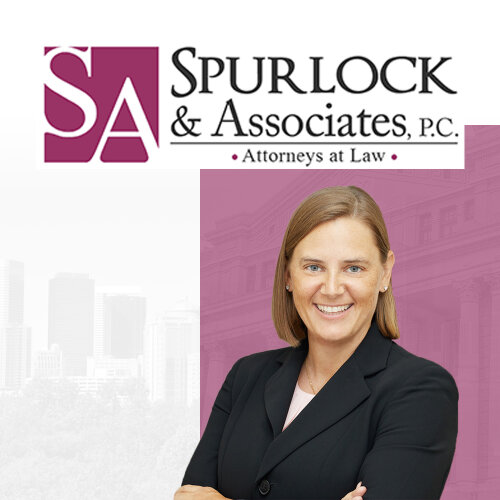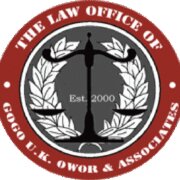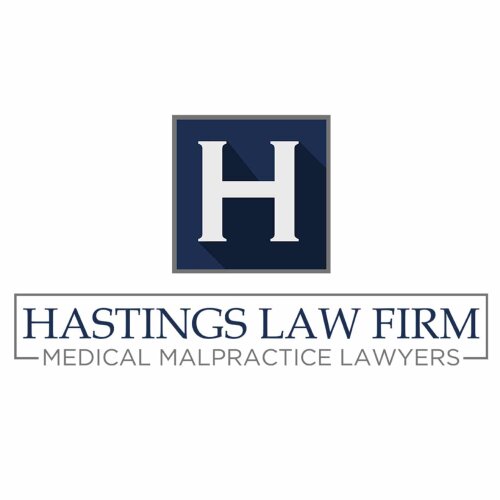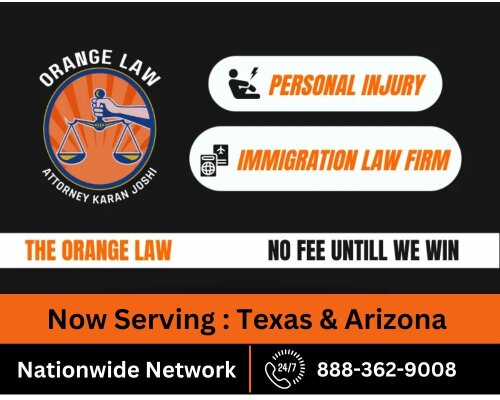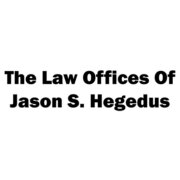Best Toxic Mold Lawyers in Houston
Share your needs with us, get contacted by law firms.
Free. Takes 2 min.
List of the best lawyers in Houston, United States
About Toxic Mold Law in Houston, United States
Toxic mold refers to certain varieties of mold that can cause serious health issues when present in homes, workplaces, and other indoor environments. In Houston, the humid climate creates conditions favorable to mold growth, making these concerns particularly relevant for residents and property owners. Toxic mold claims most often arise when residents experience health problems or property damage and believe it is due to improper maintenance or negligence by landlords, builders, or contractors. Laws surrounding toxic mold issues help protect public health, ensure safe living spaces, and hold responsible parties accountable for remediation and damages.
Why You May Need a Lawyer
Seeking professional legal help in toxic mold cases is important, because these issues are often complex and involve both health and property law. Here are some common situations where legal advice becomes necessary:
- You or your family members have experienced illness that you believe is caused by mold exposure in a rented home or apartment.
- A landlord is refusing to make necessary repairs or remediation for visible mold growth.
- You are involved in a dispute with a builder, contractor, or seller over the discovery of mold after a home purchase.
- An insurance company is denying coverage for mold-related damages or remediation.
- You are facing eviction or other retaliation after reporting a mold problem to your landlord or authorities.
A lawyer with experience in toxic mold cases can help you understand your rights, collect evidence, negotiate with responsible parties, and pursue compensation for medical expenses, property damage, and other losses.
Local Laws Overview
Toxic mold issues in Houston are governed by a combination of state and federal laws, as well as local ordinances and health regulations. While Texas law does not have specific statutes dedicated solely to mold, several important aspects are relevant:
- Landlord-Tenant Responsibilities: Texas law and local ordinances require landlords to provide homes that are safe and habitable. Mold infestations that create unsafe living conditions may be considered violations of the lease or city codes.
- Disclosure Laws: Texas property sellers are typically required to disclose known conditions like water leaks or previous mold problems to buyers.
- Building Codes: Houston building codes require proper construction and ventilation to minimize mold risk in new structures.
- Remediation Requirements: Licensed remediation contractors must follow state guidelines when removing mold from properties.
- Health and Safety Codes: Mold problems that pose health risks may be investigated by Houston health authorities under code enforcement.
While Houston does not have city-specific mold ordinances distinct from state law, local housing and health inspectors can take action if conditions are severe. Additionally, tenants and homeowners may have common law claims such as negligence or breach of contract when mold impacts health or property value.
Frequently Asked Questions
What is toxic mold and why is it dangerous?
Toxic mold is a term for certain molds that produce mycotoxins, substances that can cause adverse health effects such as respiratory infections, allergic reactions, headaches, fatigue, and in severe cases, long-term illness. Stachybotrys chartarum or "black mold" is one of the most well-known toxic molds.
What are signs of toxic mold in my home?
Signs include visible mold growth, a musty or earthy odor, areas of water damage, peeling wallpaper, and increased allergic symptoms among occupants. Mold can sometimes grow in hidden areas such as behind walls or under flooring.
What should I do if I find mold in my apartment or rented home?
Notify your landlord in writing as soon as possible. Document the problem with photographs and keep records of any communication. Your landlord is generally responsible for repairing and remediating mold issues that result from leaks or defects in the property.
Can I break my lease if my landlord refuses to fix a serious mold problem?
In some cases, you may be able to terminate your lease if your landlord fails to provide habitable living conditions. Always consult with a lawyer before taking this step, as there are specific legal requirements and notice procedures involved.
Are landlords in Houston required to remove mold?
Landlords are required to maintain rental properties in a safe and healthy condition. If mold growth poses a health risk or results from the landlord’s failure to fix leaks or prevent moisture, they are typically responsible for remediation.
Can I sue for health problems caused by toxic mold?
Yes, if you can prove that your health problems resulted from toxic mold exposure in your home or workplace due to another party’s negligence, you may have grounds for a lawsuit. A toxic mold attorney can help you build your case.
Does insurance cover toxic mold damage?
Standard homeowner’s policies in Texas often exclude mold damage unless it results from a covered peril, such as a burst pipe. It is important to review your specific policy or consult with your insurer for clarification.
What is involved in professional mold remediation?
Mold remediation involves identifying the source of moisture, removing affected materials, cleaning and disinfecting, and ensuring the home is properly ventilated. Texas regulates mold remediation, requiring licensed professionals for larger jobs.
How long do I have to file a lawsuit for toxic mold exposure in Texas?
The statute of limitations for personal injury claims in Texas is generally two years from the date you discover or should have discovered your injury. It is important to seek legal advice as soon as possible to protect your rights.
What kind of compensation can I claim in a toxic mold case?
Compensation may include medical expenses, property damage repairs, relocation costs, lost wages, pain and suffering, and sometimes punitive damages, depending on the circumstances of your case.
Additional Resources
If you are dealing with toxic mold issues in Houston, the following resources may be helpful:
- Texas Department of State Health Services - Provides information about mold assessment and remediation laws, and maintains a list of licensed contractors.
- Houston Health Department - Offers guidance on mold complaints and local health investigations.
- U.S. Environmental Protection Agency (EPA) - Offers mold cleanup guidelines and health information.
- Texas Tenants' Union - Offers resources for renters dealing with unsafe living conditions.
- Local Legal Aid Organizations - Provide free or low-cost legal assistance for tenants and homeowners with mold disputes.
Next Steps
If you believe you have a toxic mold issue and need legal help in Houston, consider the following steps:
- Document all signs of mold and any related health or property problems. Take photographs and keep a journal of events.
- Notify your landlord, employer, or relevant party in writing, and keep copies of all communications.
- Consult with a local attorney who has experience handling toxic mold cases. Many offer free initial consultations.
- If you are a tenant, contact tenant advocacy groups or the Houston Health Department for assistance with complaints.
- If you are homeowner, review your insurance policy and ask your agent about possible coverage for mold damage.
Early action is key to resolving toxic mold issues and protecting your health, property, and legal rights. A qualified attorney can help you understand your options and pursue the best course of action for your situation.
Lawzana helps you find the best lawyers and law firms in Houston through a curated and pre-screened list of qualified legal professionals. Our platform offers rankings and detailed profiles of attorneys and law firms, allowing you to compare based on practice areas, including Toxic Mold, experience, and client feedback.
Each profile includes a description of the firm's areas of practice, client reviews, team members and partners, year of establishment, spoken languages, office locations, contact information, social media presence, and any published articles or resources. Most firms on our platform speak English and are experienced in both local and international legal matters.
Get a quote from top-rated law firms in Houston, United States — quickly, securely, and without unnecessary hassle.
Disclaimer:
The information provided on this page is for general informational purposes only and does not constitute legal advice. While we strive to ensure the accuracy and relevance of the content, legal information may change over time, and interpretations of the law can vary. You should always consult with a qualified legal professional for advice specific to your situation.
We disclaim all liability for actions taken or not taken based on the content of this page. If you believe any information is incorrect or outdated, please contact us, and we will review and update it where appropriate.





